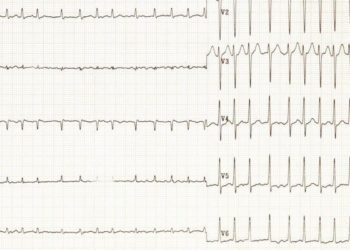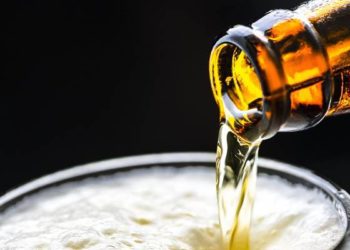Protective effect of alcohol on mortality likely specific to women >65 years of age
1. Prior studies indicating a protective effect of alcohol intake on all-cause mortality may have been partly due to weak adjustment for confounding factors and lack of an appropriate referent group.
2. After comprehensive adjustment for confounders, a protective effect of alcohol was limited to women drinkers >65 years of age, with nearly no protection for other age and sex groups.
Evidence Rating Level: 2 (Good)
Study Rundown: The negative consequences of alcohol intake are well known, with high levels of consumption linked to numerous health conditions and higher healthcare costs. Interestingly, studies assessing the relationship between alcohol use and all-cause mortality have demonstrated that low alcohol consumption may in fact confer some degree of protection. The purpose of this study was to further test this association among various age groups and determine how appropriate age-specific limits on alcohol consumption might be. The authors analyzed alcohol consumption and mortality based on data from the Health Survey for England. On initial assessment, protective effects from alcohol were found in all age groups >50 years of age and in both. However, after complete adjustment for confounding factors, including changing the referent category from non-drinkers (which included former drinkers with potentially higher mortality as a result) to never drinkers, these protective effects were attenuated. Protective effects were then observed for older women over a wide range and in particular at <10 units/average week and at 3.1-4.5 units on the heaviest day (1 unit = 8g of ethanol). There was protection seen for younger men but limited to a very narrow range.
This study benefited from data obtained from large population based database representative of the entire English population, thus making the results more generalizable. The authors were comprehensive with their adjustments for covariates compared to prior studies, which makes their conclusions more valid. As this study relied on self-reported alcohol consumption data, and because people often alter their responses according to social and cultural norms, high levels of consumption may have been under-reported. Further, there may have selection bias in that healthier individuals were more likely to have participated in the study. Overall, this study suggests that alcohol consumption may have protective effects towards all-cause mortality in women drinkers >65 years of age, a much narrower population that previously suspected. It also brings to light the fact that prior protective association were likely due to a lack of comprehensive adjustment for confounders and inappropriate selection of a referent group.
Click to read the study, published today in BMJ
Click to read an accompanying editorial in BMJ
Relevant Reading: The relation between different dimensions of alcohol consumption and burden of disease: an overview
In-Depth [retrospective cohort]: This study utilized data from the Health Survey for England between 1999 and 2008 to look at self reported average weekly consumption of alcohol over the past year and on the heaviest day in the past week, in order to determine its effects on all-cause mortality. Patients were divided into two samples (n= 18,368 and 33,523) and two cohorts, ages 50-64 and ³65 years. Before adjustment for covariates, weekly use and use on the heaviest day were protective at all levels of consumption. After a comprehensive adjustment for covariates, which included ethnicity, smoking status, education and occupational status, other socioeconomic variables, and exclusion of former drinkers from the referent category, this protective effect was attenuated. For younger men, protection was observed most at 15.1-20 units/average week (hazard ratio 0.51, CI95% 0.32-0.82) and 0.1-1.5 units on the heaviest day (0.50, CI95% 0.30-0.84). For older women, this protective effect existed over a wider range but remained restricted to lower levels of consumption, <10 units/average week, and at 3.1-4.5 units on the heaviest day (0.58, CI95% 0.39-0.87).
Image: PD
©2015 2 Minute Medicine, Inc. All rights reserved. No works may be reproduced without expressed written consent from 2 Minute Medicine, Inc. Inquire about licensing here. No article should be construed as medical advice and is not intended as such by the authors or by 2 Minute Medicine, Inc.







